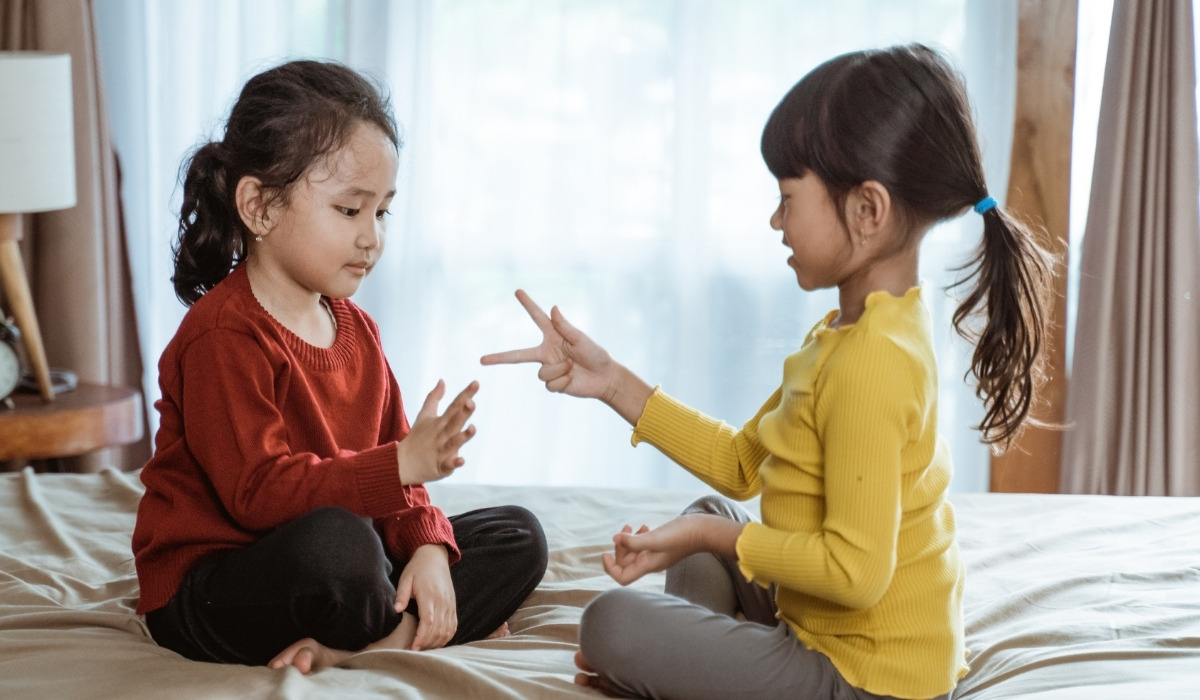Key Points:
- Autistic people can and do build meaningful friendships, though the path may look different.
- Parents can support autism friendships by teaching social skills, encouraging shared interests, and creating safe social opportunities.
- Understanding and patience from both peers and adults are crucial for fostering authentic connections.
Many parents wonder how their autistic child can make friends and build lasting connections. The idea of friendships is often tied to social ease, small talk, and group dynamics — areas where autistic children might struggle.
Yet, autism friendships are not only possible but can also be deeply meaningful and authentic. With the right support and understanding, autistic people can form bonds that are every bit as fulfilling as anyone else’s. This article explores how autistic individuals approach friendships, the social challenges they may face, and practical ways parents can help.
Can Autistic People Really Make Friends?
Yes — autistic people absolutely can make friends, though the process and style of connection might differ from what many parents expect. Many autistic children and adults deeply desire connection, but they may find it difficult to initiate or maintain typical social interactions. Autism friendships often center around shared interests, routines, and understanding rather than social rituals like small talk or group outings.
For example, instead of hanging out at a loud party, an autistic child might prefer playing video games with a friend who loves the same game. Rather than dozens of acquaintances, they may thrive with just one or two close friends who “get” them. Recognizing these differences is key to helping your child succeed socially without forcing them into situations that feel unnatural or stressful.
Why Social Skills Feel Harder For Autistic Kids
It’s common for parents to notice that their autistic child seems unsure how to approach others, join in, or keep a conversation going. This isn’t because they don’t care — in fact, many autistic kids care deeply about making friends — but because certain social skills don’t come as intuitively.
Here are some reasons why autism friendships can be harder to develop:
- Difficulty reading social cues: Many autistic children find it hard to pick up on subtle facial expressions, tone of voice, or body language.
- Sensory sensitivities: Crowded or noisy environments can feel overwhelming, making it harder to focus on socializing.
- Different communication styles: Some autistic people prefer very direct communication and may not understand sarcasm, jokes, or unspoken rules.
- Anxiety: Fear of rejection or past negative experiences can make social situations feel risky.
Understanding these challenges helps parents respond with empathy instead of frustration.
How Parents Can Support Autism Friendships
The good news is there are many practical ways to help autistic children develop friendships and social confidence. While these strategies won’t “fix” the child — because they’re not broken — they can make social interactions more comfortable and successful.
Encourage Shared Interests
Autistic people often build friendships around mutual passions rather than general socializing. Parents can help by identifying activities their child loves and finding peers who enjoy the same things. Whether it’s chess, animals, trains, or drawing, these shared interests can serve as a natural bridge to connection.
Some ideas include:
- Enrolling your child in clubs or classes based on their favorite hobbies.
- Arranging playdates with peers who like the same activities.
- Visiting libraries, museums, or hobby shops where others with similar interests might gather.
Teach Social Skills In Small Steps
Many autistic kids benefit from learning social rules explicitly, instead of assuming they’ll just pick them up. You can practice at home or with the help of a therapist:
Some simple skills to practice are:
- How to greet someone and ask to join in.
- Taking turns in conversation and play.
- Noticing when a friend is bored or upset.
- How to end a playdate or conversation politely.
Role-playing these scenarios can help your child feel more confident when the real situation comes up.
Create Safe, Predictable Environments
Because unpredictable or overstimulating situations can make socializing harder, it’s helpful to plan social opportunities in familiar, calm settings. This helps reduce anxiety and lets your child focus on connecting rather than coping.
Some ways to do this include:
- Hosting playdates at home, where your child feels comfortable.
- Keeping groups small — one or two friends at a time.
- Letting your child know ahead of time what to expect, including who will be there, what activities will happen, and how long it will last.
Celebrate Progress
Every social interaction your child engages in — even if it’s just saying hello — is progress worth celebrating. Building friendships is a skill that takes time, and it’s important to recognize and reinforce their efforts, even if they don’t look like typical friendships.
Helping Peers Understand
Autism friendships are a two-way street. It helps when neurotypical peers also understand and accept differences. Parents and teachers can talk to classmates or friends about how everyone communicates and interacts differently, and that’s okay. Teaching empathy and acceptance in the wider community helps create an environment where autistic kids feel included and valued.
When To Seek Additional Help
Sometimes, despite your best efforts, your child may still struggle significantly with making and keeping friends. If this happens, it’s okay to seek extra support.
Social skills groups, speech therapy, or working with an Applied Behavior Analysis (ABA) therapist can all be helpful. These professionals can guide both you and your child with tailored strategies to improve social understanding and confidence.
Build Connections With Empower ABA
If you’re looking for compassionate, effective support to help your child build social skills and meaningful connections, Empower ABA is here to help. Through evidence-based ABA therapy in Virginia, New York, and New Jersey, Empower ABA helps children develop the communication, social, and emotional skills they need to succeed — not just in friendships but in life.
Our team understands how important these relationships are, and we work with families to create customized, supportive plans that meet each child where they are. Contact us today to learn how we can help your child build the friendships and confidence they deserve.


